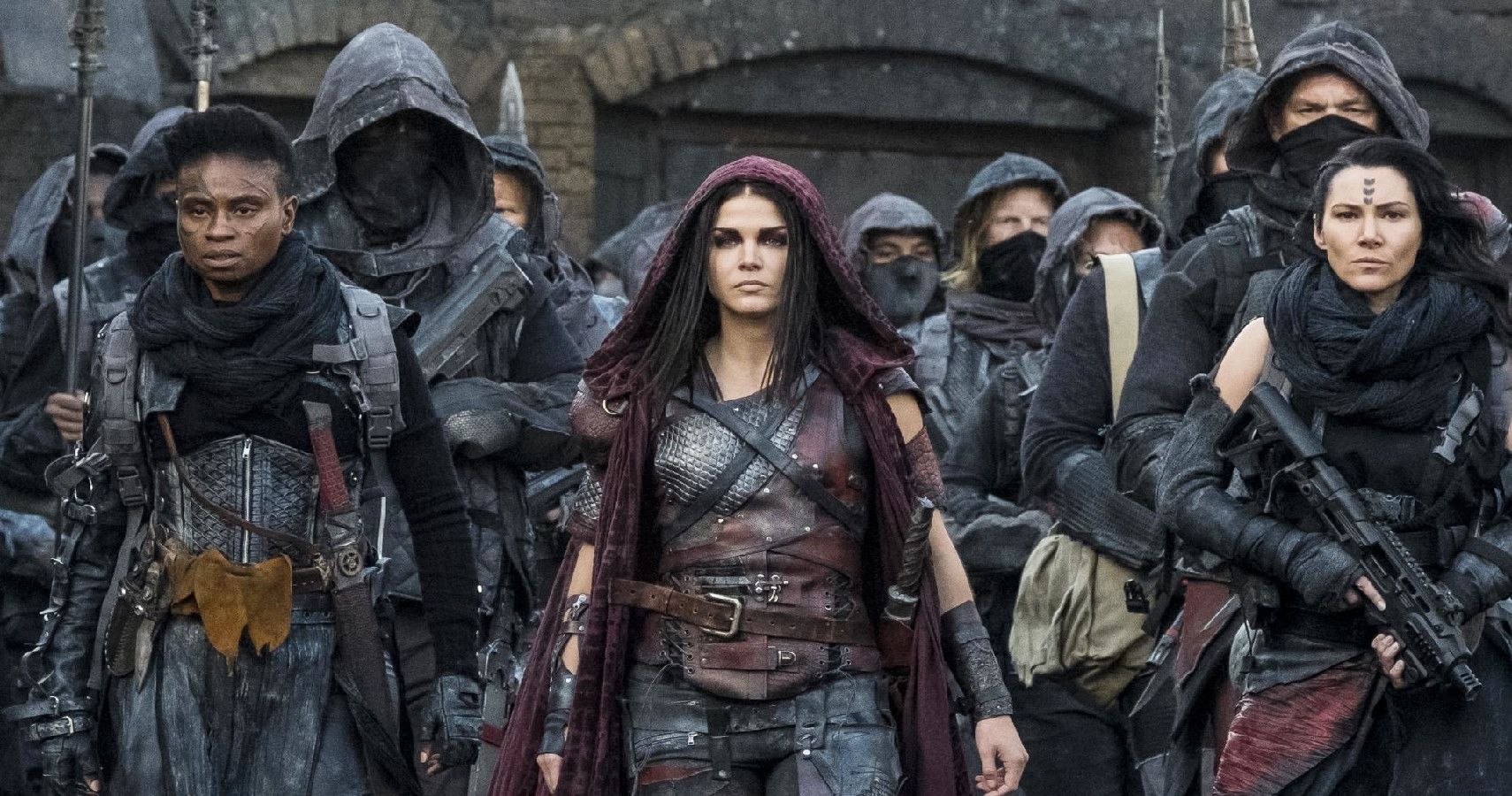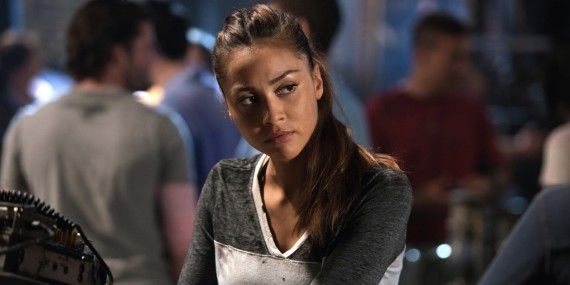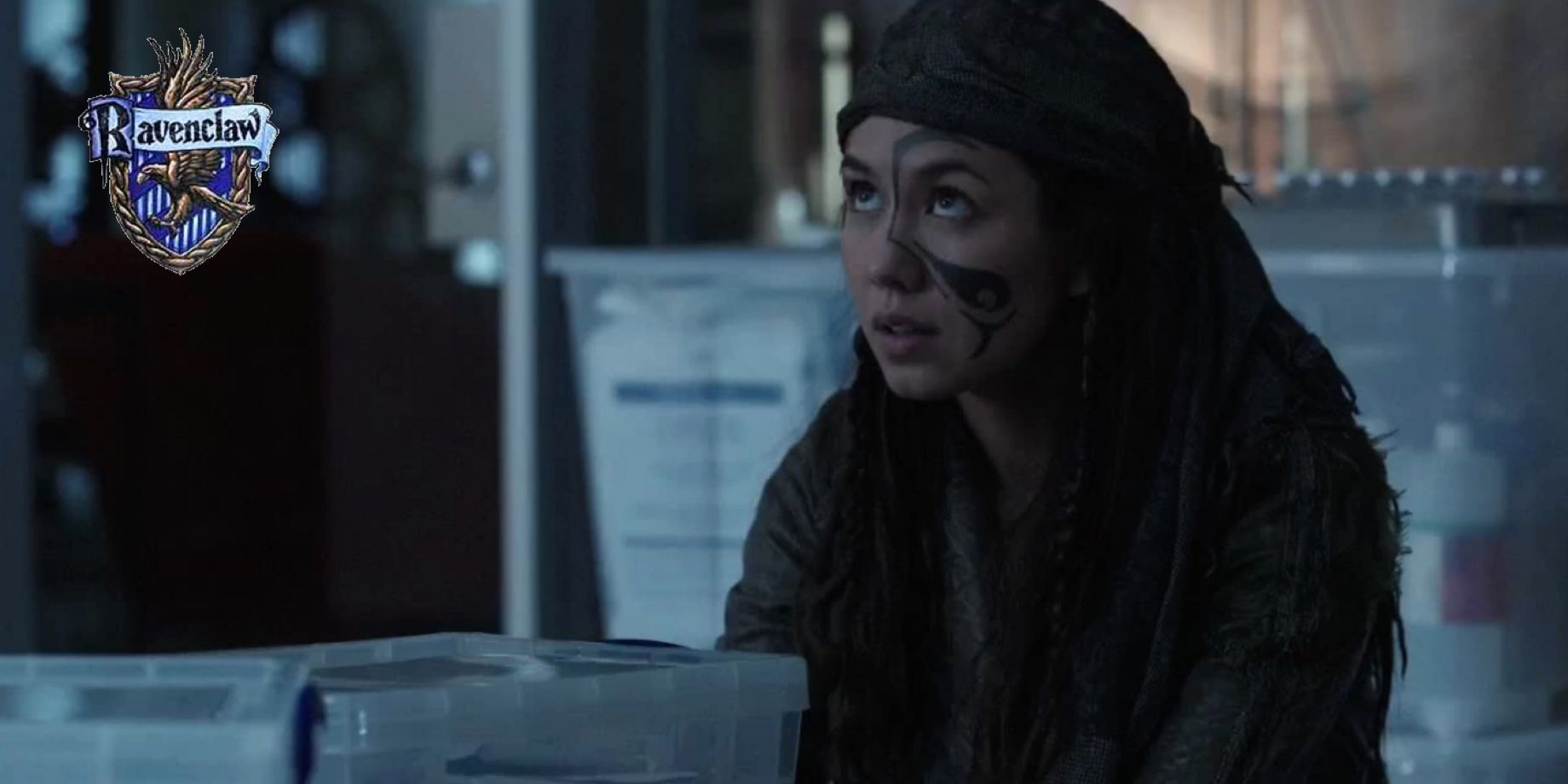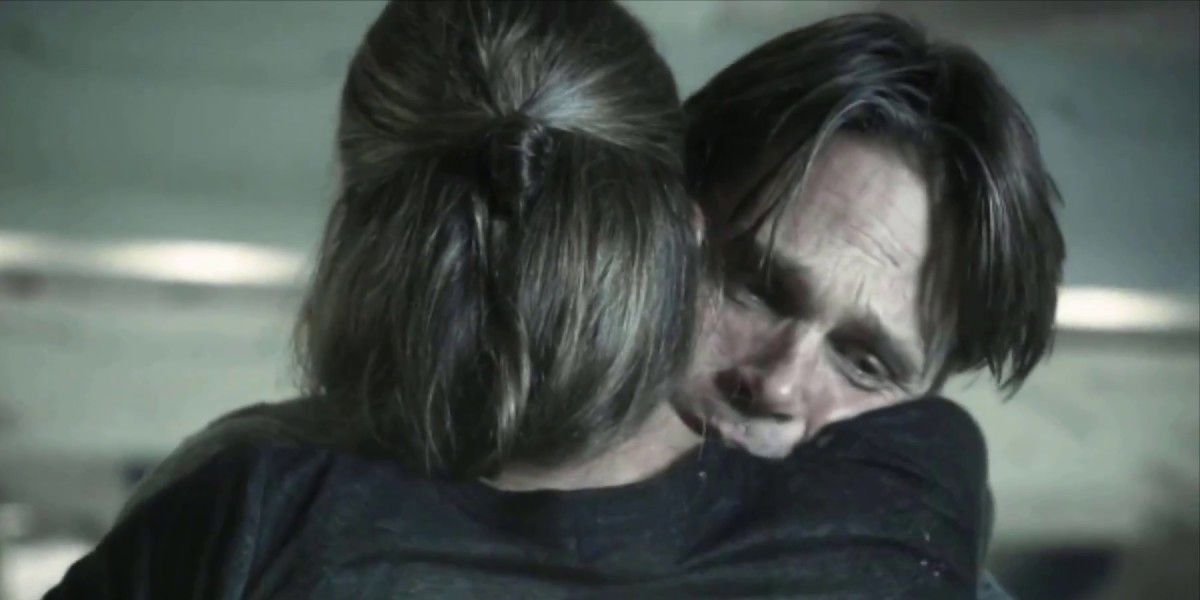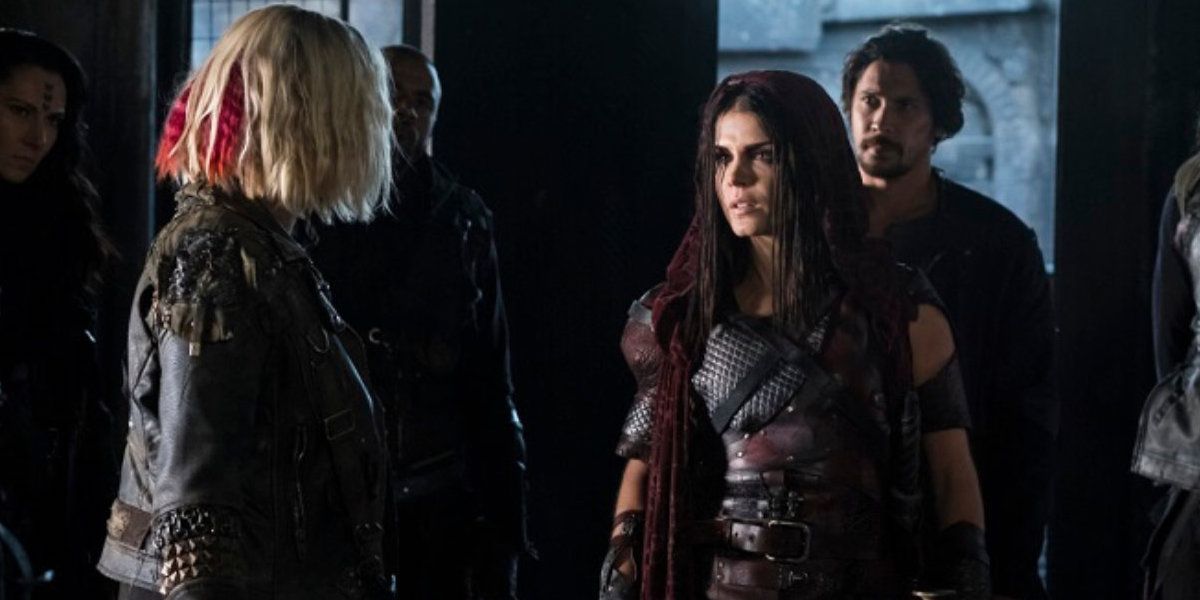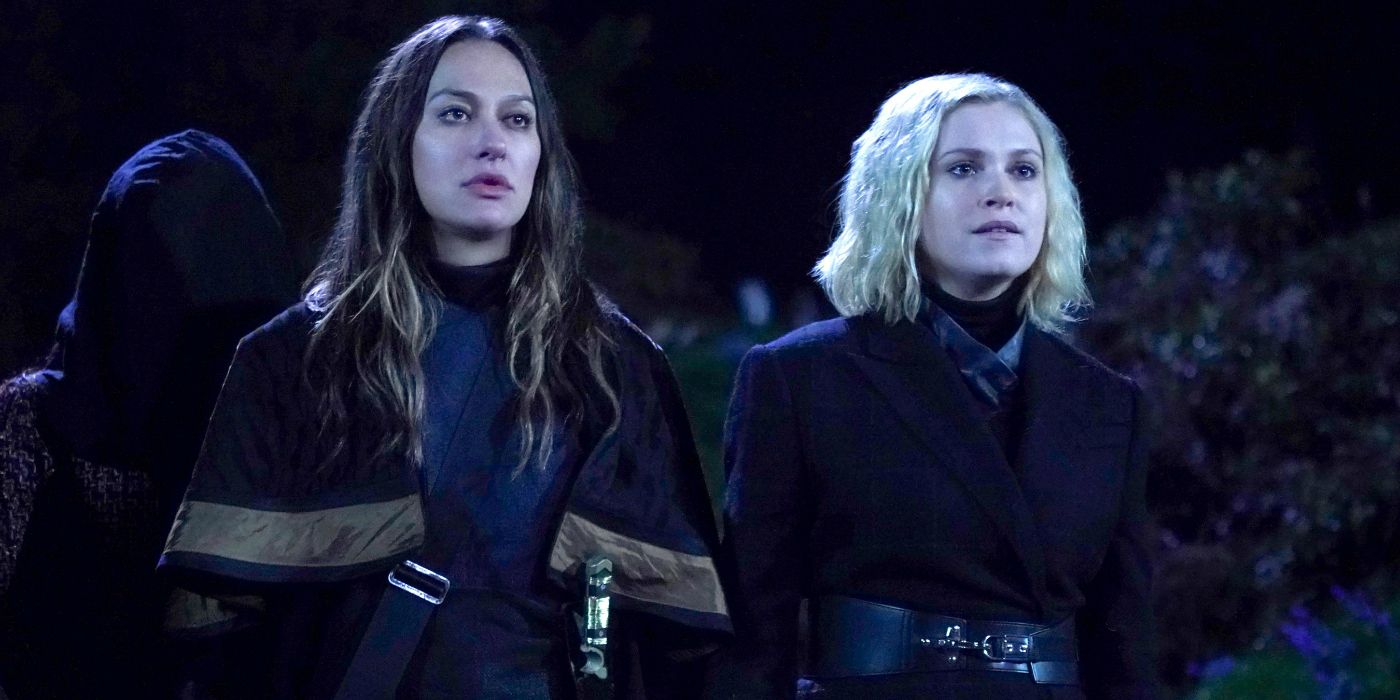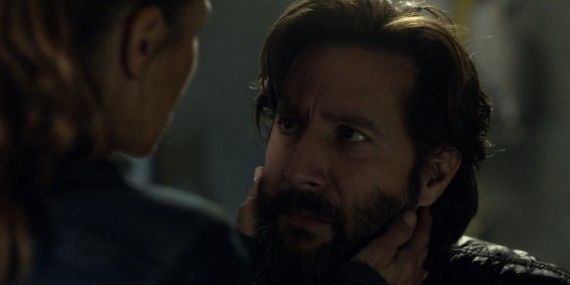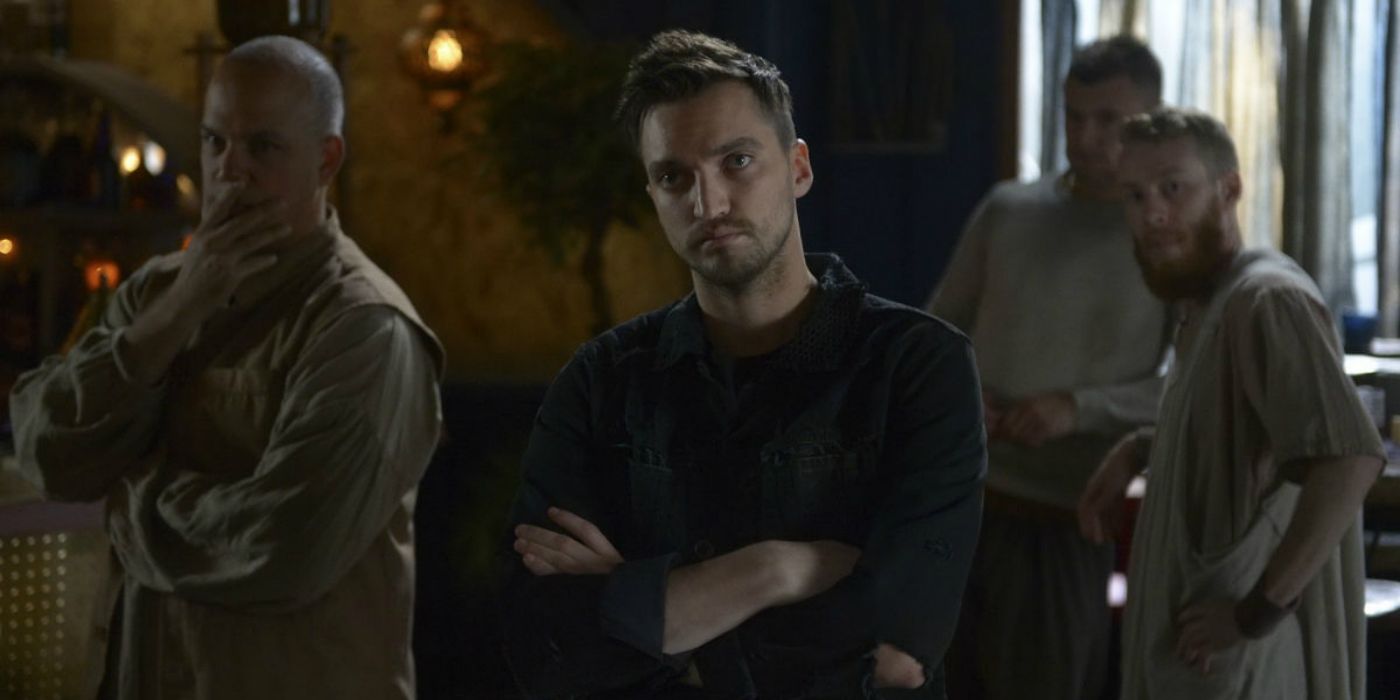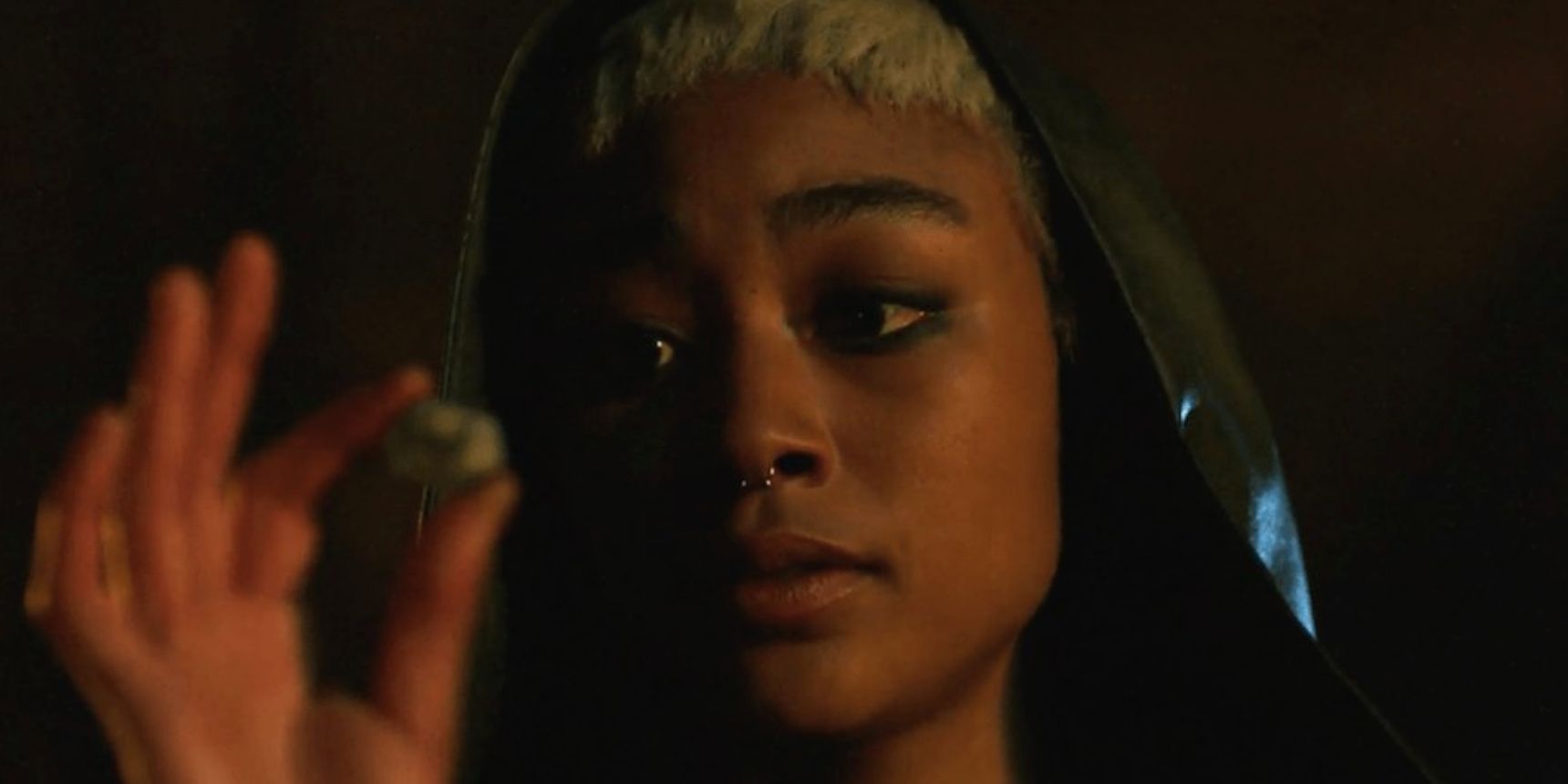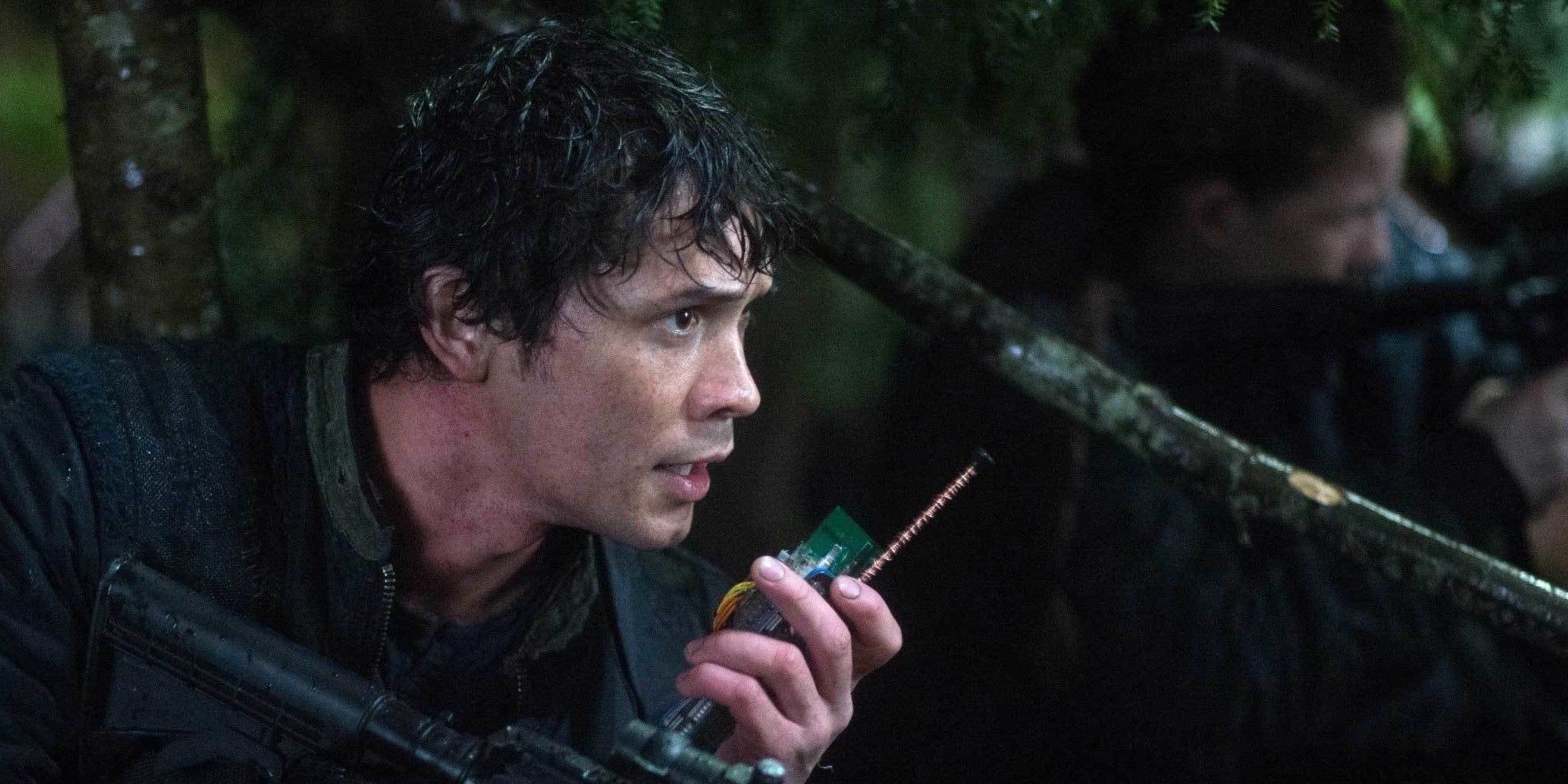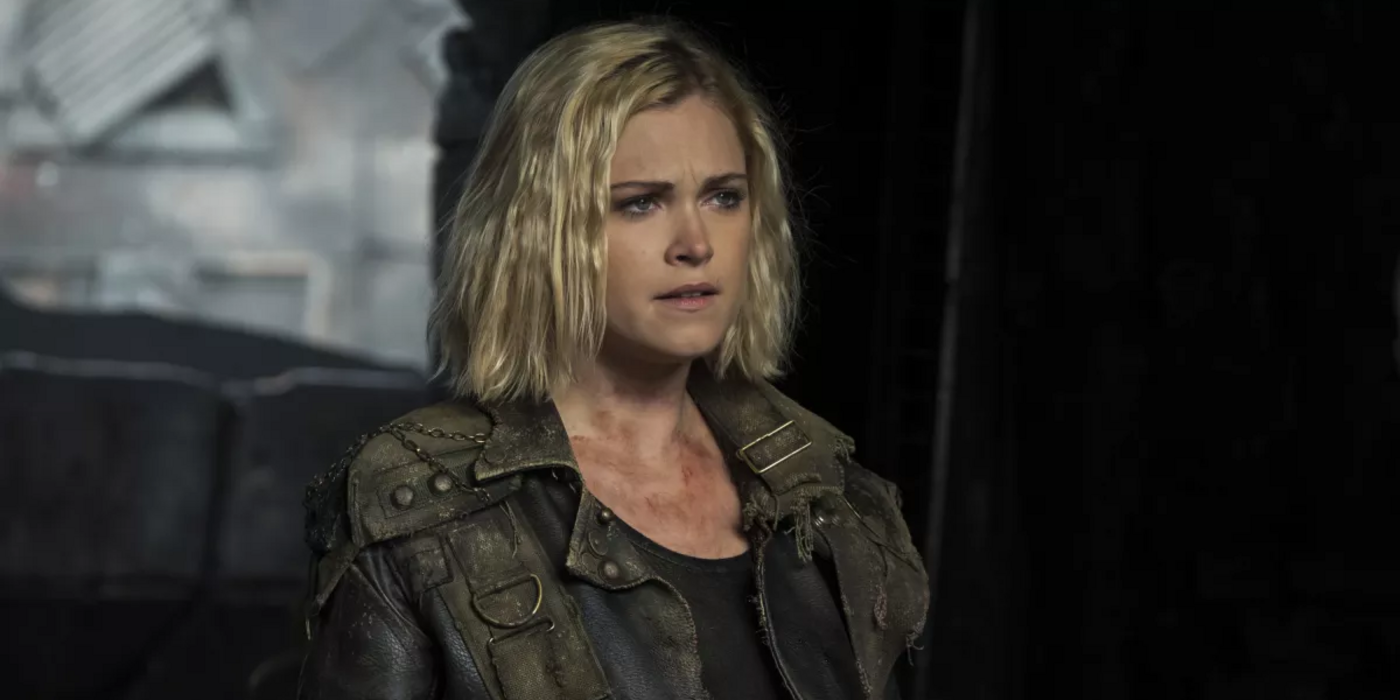Loosely based on the novels, the CW's The 100 is a series about a group of adventurers trying to survive in a post-apocalyptic universe, and all the while questioning what it means to survive in the face of the things they've had to do to stay alive. Throughout the story, these adventurers have faced up against Grounder Warriors, AI cults, kidnappers who wanted to steal their bone marrow, bodysnatchers claiming to be gods, and tyrannical leaders who wanted only death and destruction. Through their cunning and skill, the main characters (mostly) survive. But how have their actions affected where they fall on the scale of D&D moral alignments?
Raven Reyes: Lawful Good
As one of the only characters on The 100 to have never done anything that compromised her morals, Raven remains unwilling to sacrifice the few for the needs of the many. She actively opposes torture, murder, and if she had her way she'd seek to dethrone people like the Primes who benefit from the manipulation and the suffering of others.
Though in early seasons she breaks the laws that were in place on the arc, she only breaks those laws because that government (the arc) betrayed her and her peers by sending the original hundred children to the ground. Once she's on the ground, she pretty much does whatever Clarke and Bellamy ask.
Emori: Neutral Good
One of the only surviving Grounders from the early seasons, Emori has had to do some terrible things to survive. Things seem to change for her when she meets John Murphy--her neutral evil tendencies shift towards true neutral as she begins to include John in the very short list of people she cares about: John Murphy, and herself. After Clarke saves Emori from radiation sickness, Emori escapes Praimfaya with the five other members of Spacekru. When she reaches the ground again, she cares about protecting the other members of Spacekru, and she also cares about reaching a state of tranquility, which means that she knows the fighting around her has to come to an end.
Abby Griffin: Neutral Evil
Many fans of the series have loud things to say about Abby Griffin, and once you closely examine her under the light of D&D moral alignments, it becomes easy to understand the strong feelings. Infamously, she sends Clarke spinning for a few seasons by telling her that there "are no good guys."
Abby's also the reason behind Luna's existentialism and subsequent mission to end the human race after she steals bone marrow from Luna so that she can run a potentially fatal experiment on a very unwilling Emori. Abby is the reason Blodreina transitions from gladiator queen to cannibal queen—and then she blames and betrays Octavia, and after all that is happy to watch a room full of adults beat Octavia (a young twenty-something) nearly to death in a mess hall.
Octavia Blake: Lawful Neutral
If D&D moral alignments were tourist locations, Octavia Blake could be a tour guide for each one of them. Lawful evil; as Skairipa she served Roan as an assassin. Lawful good; with Lincoln's help, she tried to dissolve the conflict between the Arkadians and the Grounders. True neutral; she tried to remove herself from any conflict when she lived with Ilian on his farm. When she enters the anomaly, she's been low-key exiled from her community by Bellamy for acting on the classic neutral evil us versus them mentality. When she emerges from the anomaly, she's a new alignment: lawful neutral. Octavia doesn't seek to elevate anyone anymore, only to rescue her friends, save the innocents, and restore balance to the world around her.
Echo: Chaotic Neutral
After her family was killed by Azgeda forces, the Azgeda Queen raises Echo to be a spy and an assassin. When Echo first appears, she's a captive of Mount Weather, where she meets Bellamy. After the Queen and her son Roan are killed, Echo allies with Bellamy and the other members of Spacekru to survive. She's loyal to Bellamy... and also attempts to kill Clarke in front of Madi in season five. Chaotically, in season six she assists Bellamy as he embarks on a dangerous mission to rescue Clarke. As she's a spy by trade, it can be difficult to guess at Echo's motives or intentions, except to say that they're not exactly evil, and they're not always good.
Marcus Kane: Lawful Good
Marcus Kane is a character who quite literally fell from the sky, hit the ground safely, shepherded his people to food and shelter, and was later crucified. In season six he died and then is resurrected. His friend Indra even calls it a miracle. Kane's lengthy monologues are often about what is wrong and what is right.
He spends a lot of his screen time forcing the other characters to question whether their actions are ethical. He spent some time as a lawful evil character in early seasons, before transitioning to a lawful neutral stance. Since he was forced to kill in the fighting pits, Kane has been firmly on the side of lawful good—even if it takes him a few more tries to get it right.
John Murphy: Chaotic Good
In season one we see Murphy at his very worst, and he's subsequently exiled from the hundred for causing riots trying to hang a nine-year-old girl. After the dropship is attacked, Murphy finds himself stuck in the dropship with a severely injured Raven, who was hit by a bullet he had fired. He spends some time after this trying to survive without harming others, and then meets Emori, and wants her to survive too. In season six, he dies, and this changes him again. At first, his actions are neutral evil (betraying Clarke and his friends for Prime drives for himself and Emori), but after the Primes take Abby as a host, he aligns himself with the forces of good to the tune of some wicked electric guitar solos we hope follow Murphy around all through season seven.
Gaia: Neutral Good
Gaia shines in season six as a neutral good cleric, a Keeper of the Flame, and disciple of Becca Pramheda. In the days of the Commanders, the Flame Keepers would do whatever was necessary to protect and obey their commanders (lawful neutral). In only one instance did a Flame Keeper disobey a commander—we find this out in season six as Gaia comes up against her greatest foe, Sheidheda, the Dark Commander. Sheidheda seeks to corrupt the Flame and steal Madi's body to command Wonkru to evil and selfish ends. Gaia decides to let Raven destroy the flame to kill Sheidheda and save Madi. Gaia's sacrifice may not have destroyed Sheidheda, but it did save Madi, which indicates Gaia is now on a neutral good path.
Bellamy Blake: Neutral Good
Believe it or not, Bellamy spends most of the show riding the line between neutral good and neutral evil, and often he resides firmly on the side of evil, like when he slaughtered Indra's army. In season six we see him in a different light. For the first time, Bellamy seems truly remorseful about his actions.
He tells Josephine (thinking she is Clarke) that he sees the faces of the people he's killed in his dreams. Though it takes him the full season to make the proper swing from neutral evil to neutral good, by the end of season six he agrees to help Gabriel rescue his children while also sparing the lives of those who were still loyal to the Primes.
Clarke Griffin: Neutral Good
Unlike many of the other characters, Clarke has been neutral good since she first stepped foot on the ground, and long before that when she attempted to alert the Arkadians to the Ark's failing life support system after Jaha floated her father. On the ground, she doesn't care that she's bullied or mocked—only that they have access to food and water. No matter who needs her help, she there for them as a doctor, a leader, and a strategist. When the show begins, she's only seventeen, so it's understandable she spends a few seasons navigating the ethics of her post-apocalyptic world, but by season six she's running on Monty's signature slogan—do better—and you can see it in her actions.

